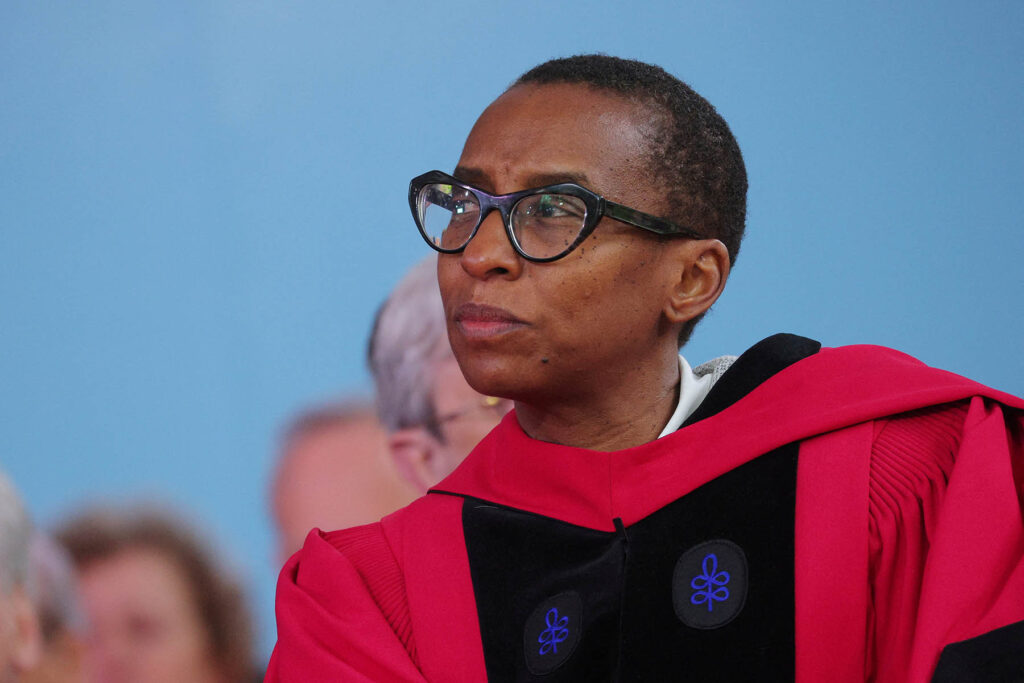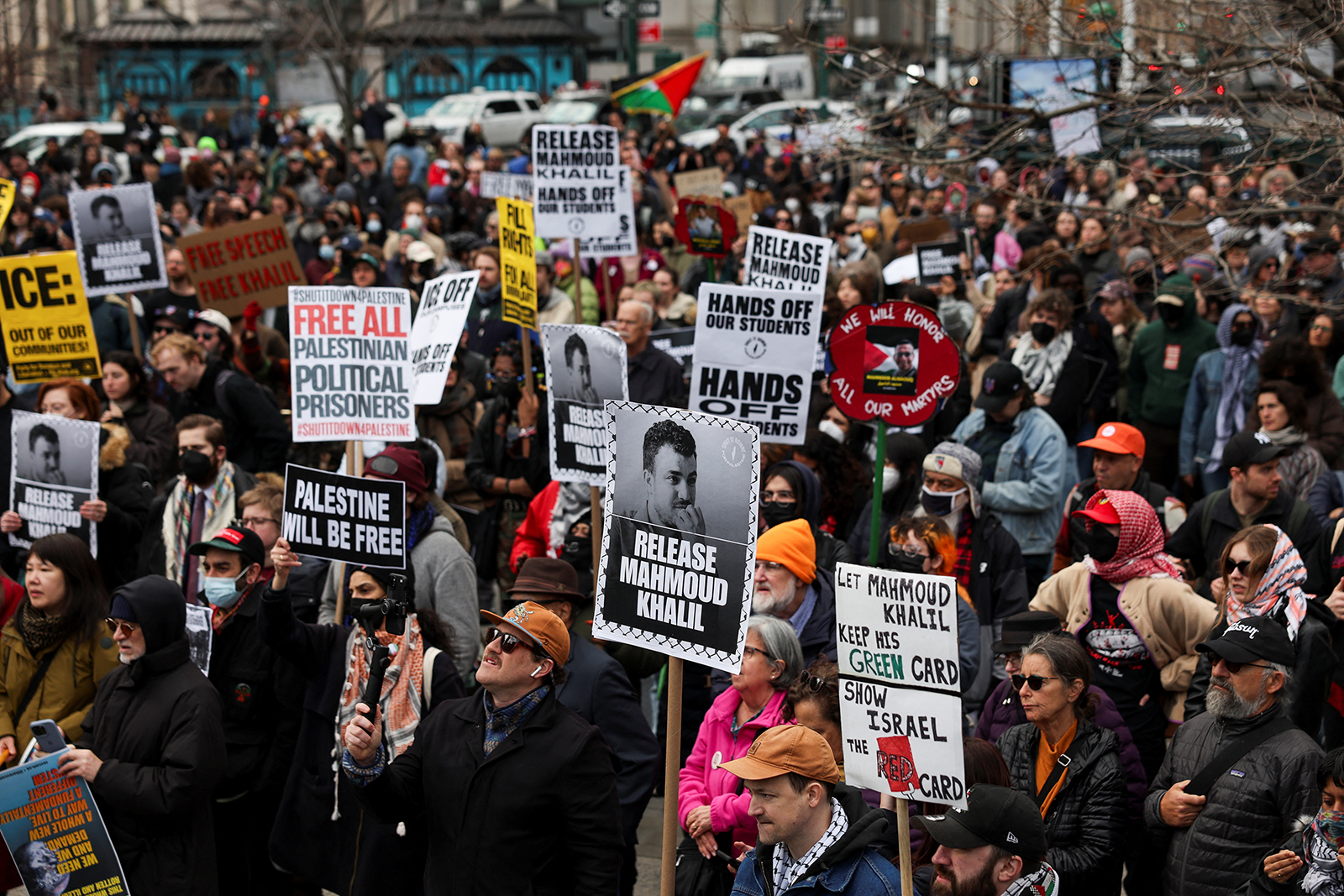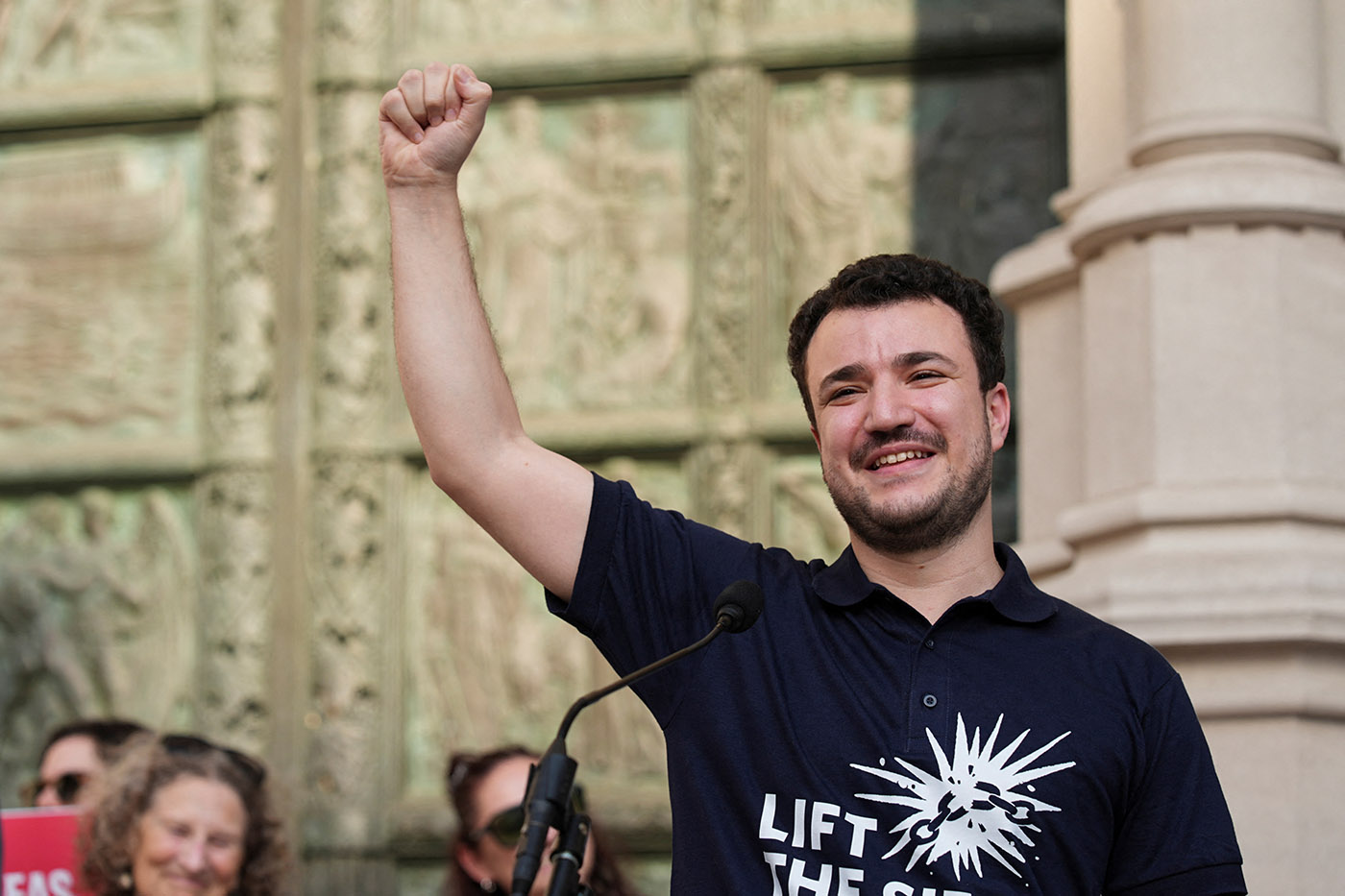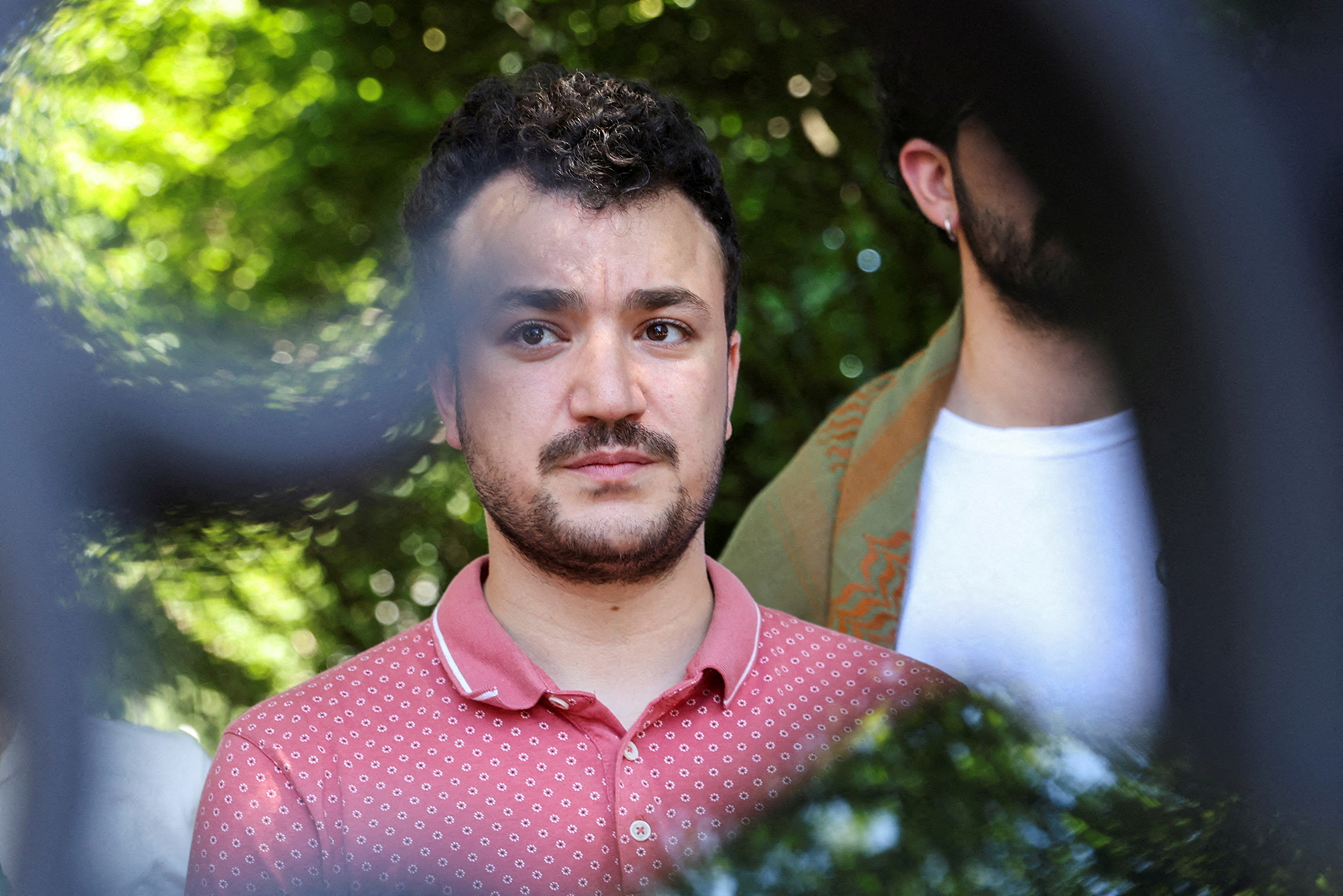CAMBRIDGE, Mass. (AP) — Harvard President Claudine Gay will remain leader of the prestigious Ivy League school following her comments last week at a congressional hearing on antisemitism, the university’s highest governing body announced Tuesday.
“Our extensive deliberations affirm our confidence that President Gay is the right leader to help our community heal and to address the very serious societal issues we are facing,” the Harvard Corporation said in a statement following its meeting Monday.
Only months into her leadership, Gay came under intense scrutiny following the hearing in which she and two of her peers struggled to answer questions about campus antisemitism in the wake of the latest Israel-Hamas war, which erupted in early October. Their academic responses provoked backlash from Republican opponents, along with alumni and donors who say the university leaders are failing to stand up for Jewish students on their campuses.
Some lawmakers and donors to the university had called for Gay to step down, following the resignation of Liz Magill as president of the University of Pennsylvania on Saturday.
On Tuesday, the University of Pennsylvania announced it had selected an interim president to replace Magill, naming Dr. J. Larry Jameson, who has served as executive vice president of the University of Pennsylvania for the Health System and dean of the Perelman School of Medicine since 2011.
A petition signed by more than 600 faculty members had asked the school’s governing body to keep Gay in charge.
At issue was a line of questioning that asked whether calling for the genocide of Jews would violate the universities’ code of conduct. At the hearing, Gay said it depended on the context, adding that when “speech crosses into conduct, that violates our policies.”
“So many people have suffered tremendous damage and pain because of Hamas’s brutal terrorist attack, and the university’s initial statement should have been an immediate, direct, and unequivocal condemnation,” the corporation’s statement said. “Calls for genocide are despicable and contrary to fundamental human values. President Gay has apologized for how she handled her congressional testimony and has committed to redoubling the university’s fight against antisemitism.”
In an interview with The Harvard Crimson student newspaper last week, Gay said she got caught up in a heated exchange at the House committee hearing and failed to properly denounce threats of violence against Jewish students.
“What I should have had the presence of mind to do in that moment was return to my guiding truth, which is that calls for violence against our Jewish community — threats to our Jewish students — have no place at Harvard, and will never go unchallenged,” Gay said.
Testimony from Gay and Magill drew intense national backlash, as did similar responses from the president of MIT, who also testified before the Republican-led House Education and Workforce Committee.
U.S. Rep. Elise Stefanik, R-New York, a committee member who repeatedly asked the university presidents whether “calling for the genocide of Jews” would violate the schools’ rules, voiced her displeasure about the school’s decision on X, the social media platform.
“There have been absolutely no updates to (Harvard’s) code of conduct to condemn the calls for genocide of Jews and protect Jewish students on campus,” she said. “The only update to Harvard’s code of conduct is to allow plagiarists as president.”
The school said an independent review into plagiarism allegations against Gay found three instances of “inadequate citation,” but no misconduct.
On the Harvard campus, the news about the decision came as students and teachers were rushing to classes. Gunduz Vassaf, a visiting professor in psychology, said he supports Gay.
“I fully support her testimony before Congress. I do believe that the situation has been taken out of context in the emotions of the immediate moment,” Vassaf said.
“As long as there’s no incitement and a call for violence, this falls within the freedom of speech,” he added.
Evan Routhier, a student at Harvard, said he also supports Gay.
“My experience since she’s taken over has been positive,” he said.
The news drew others to the campus.
Rabbi Chananel Weiner, the director of Aish Campus Boston, said he came to Harvard to show solidarity with students.
“We need to resist the ideas really that are being spread here that are really against the Jewish people,” he said. “The Jewish people are under attack and we’re under attack from all angles, academia being one of them and this is the heart of academia.”
Celebrity lawyer Alan Dershowitz, a longtime defender of Israel and a professor at Harvard Law School, said Tuesday it was a mistake for the Harvard Corporation to support Gay, saying she championed a diversity, equity and inclusion bureaucracy “that has become an incubator for antisemitism.”
He said he hopes that Gay changes her views on free speech to ensure everyone is treated the same.
“Right now she has been presiding over a dangerous double standard that permits free speech attacking some groups but not others. The school must decide on a policy, either free speech for all, equally, or limited restrictions, equally applied. She has not been the champion for that kind of equality and therefore she is the wrong person, at the wrong time, in the wrong job,” he said.
A grassroots watchdog group called StopAntisemitism said on X that Harvard’s decision “serves only to greenlight more Jew-hatred on campus.” It said it continues to call for Gay’s resignation and urged the corporation to reconsider.
College campuses nationwide have been roiled by protests, antisemitism and Islamophobia since the start of the war in Gaza two months ago, putting university administrators across the nation on the defensive.
The corporation also addressed allegations of plagiarism against Gay, saying that Harvard became aware of them in late October regarding three articles she had written. It initiated an independent review at Gay’s request.
The corporation reviewed the results on Saturday, “which revealed a few instances of inadequate citation” and found no violation of Harvard’s standards for research misconduct, it said. Gay is proactively requesting four corrections in two articles to insert citations and quotation marks that were omitted from the original publications, the statement said.
Harvard’s announcement came the same day several prominent universities faced new federal investigations for allegations of antisemitism or Islamophobia.
The U.S. Education Department announced it opened civil rights investigations at Stanford, UCLA, the University of California-San Diego, the University of Washington-Seattle, Rutgers University and Whitman College. Details about the complaints were not released. Those schools join Harvard, Penn, Cornell, Columbia and several others that have come under investigation by the department since Oct. 7.
Tags



